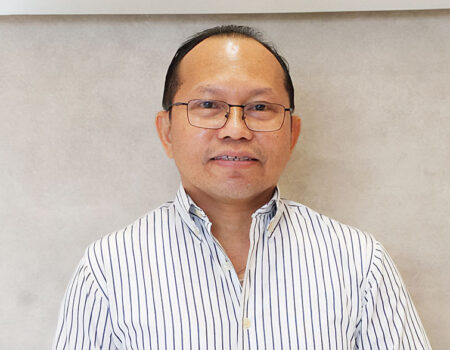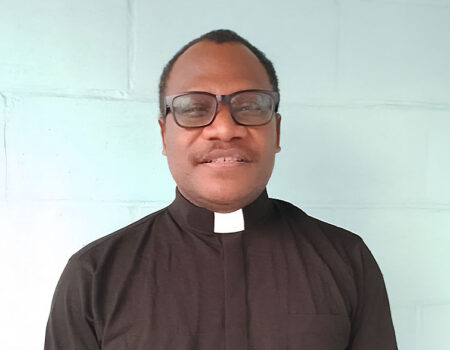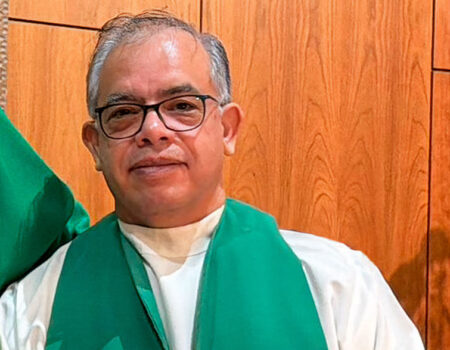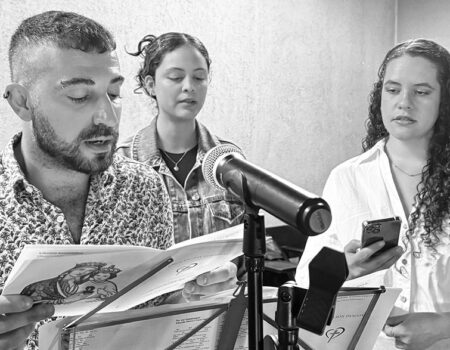CENTER FOR THE POOR

March, 2019
MSC – Center for the Poor
How long has the Center been open? How was the experience leading to its opening?
Hammer clobbering down nails, brushes sweeping across surfaces, shovel plunging into the soil and bits of laughter and conversations filled the Center every day as they prep for the brimming first half of 2019 with their jam-packed projects and activities.
The Center for the Poor has so many irons in the fire with its ongoing constructions and improvements on both its social programs and physical structures. The buildings and facilities are hastened to be used for the various activities of and in the Center to fully realize its purpose. Several social programs are also making strides, focusing on human development and environmental awareness.
Unique in character and purpose, The Center for the Poor is the working arm of the Missionaries of the Sacred Heart holding itself responsible as the force that acts in response to the ministries of the congregation. Its concentration is on making a mark in the community through environment stewardship, strengthened social action and media apostolate.
The Center formally opened its doors six months ago (last quarter of 2018) greeted by overwhelming response from the people.
“What drives us MSC to establish Center for the Poor [is] because of this prevailing issue of our time. As again our Pope’s admonition that man betrays God by destroying the environment. Simply put, to abuse the earth is to abuse ourselves; to protect and to love the earth is to protect and love ourselves. We need to see with the eyes of faith the beauty of God’s saving plan, the link between the natural environment and dignity of the human person.” Fr. Richie Gomez, Center for the Poor in-charge said with pride when asked how the Center came to be.
Projects
In general, what do you aim to complete and start this year a center in terms of its physical constructions and planned activities/programs?
“We need to see with the eyes of faith the beauty of God’s saving plan, the link between the natural environment and dignity of the human person.” 7
The Center
While in its infancy, the Center is working diligently to construct the physical structures, which shall become the supporting facilities of the Center.
Fr. Richie pointed out the essence of the structures inside the Center, to quote “[p]hysical structure of the Center is very important in a sense that we want to showcase to people alternative lifestyles. Evidence-based of living sustainably is possible just like simply following the Law of Nature. We need actual demonstrations [in] an open place for sharing traditional/sustainable knowledge as we called it “BEST GREEN PRACTICES.”
At present, they are creating an Earth Kitchen. This amenity is an open kitchen made from bricks with cook stoves fired up using biofuel from their yard waste. It is among the amenities that showcase how the community can maximize natural resources without depleting it. The Center will also soon have canopies and cottages for shades suited for outdoor activities on the landscaped grounds. Training hall & dormitories are likewise being completed to fully support living functionalities in the Center.
However, the most important endeavor that the Center focuses on is on the development of the community from the children or the youth and slowly spreading its web of coverage to the greater community. Fr. Richie explained that since they first opened its doors, they have implemented scholarship programs for disadvantaged youth, livelihood projects for the vendors and continuing education on environmental awareness.
Zero-Waste Lifestyle
What’s a more effective way to teach others than by example?
The underlying principles of the Center point out that formal continuing education and awareness can also be a medium to forward discipline supported by actual practice. That is, being a steward of the environment should both be in the mind, heart, and action. It is why it would not come as a surprise that the activities of the Center involve both theoretical and practical activities.
They began their environmental stewardship primarily through a Zero Waste lifestyle evidenced by seminars, workshops, and clean-up drives as a running start. They’ve had clean-up drives of esteros or canals and vacant lots and seminars and workshops like the Zero Organic Waste seminar on the other hand.
To further put into practice the Center’s environmental principles, they also put up solar energy and biofuel amenities powered using more of their yard waste. For water consumption, they utilize rainwater through the process of natural filtration methods.
Fr. Richie explained why when we plan on improving our lives, we begin with our surroundings. He said “[r]eturning to the soil what is beneficial and the soil can give us [back] fruits and vegetables which we need at our table [like] the process of BOKASHI, [which is a] food preservation or fermentation [process] for us to attain “Zero Food Waste”. This food management practice not only reduced their waste, but is a method to develop microbes and probiotics necessary to keep better health.
In the same online interview, Fr. Richie excitedly share their hope to reforest an area, where they can build a Living Museum of Indigenous Trees with an organic demo farm and application of eco-spirituality as part of the design. The Center aims to use this project as a concrete response to the challenge of Laudato Si in our care for the common home, for the restoration of indigenous flora and fauna.
These environmental projects only constitute the tip of the iceberg as many are in works on the Center’s pipeline.
Children/Youth at the Center
The children will always have a special part at the heart of the Center. Referring to the aspirations of this grassroots non-profit arm of the Missionaries of the Sacred Heart, it aspires to be the helping hand to the “poor, the little ones and the marginalized in the society.”
The Center at once embarks on having a program for the children. The Center Director revealed “[w]e cater [to] children whose parents are in jail because of drug cases.” The Centers endeavors to be an ally and champion for children whose parents cannot be there for them to safeguard their moral and spiritual well-being.
Soon, the Center is looking at partnering with the Government on “After Care” programs for those drug dependents, who are in the process of rehabilitation. Fr. Richie is positive that “these small, but concrete has become possible and will flourish because of the people’s participation and generosity.”
Challenges
What are the hurdles you encountered or you think will encounter as you go through these activities?
With a plethora of things to be done, the Center also finds itself laden with challenges. “You know, to think about difficulties and hindrances along the way, is always part of ‘ADVOCACY’. Hardship and difficulties are side by side with advocacy. (for our Founder Fr. Jules Chevalier – difficulties are opportunities.) People may not be convinced of our ways, it’s okay. But we cannot fake and we cannot fast track the Law of Nature. At the end of the day, we cannot say “ALL IS WELL” when we know that there is something wrong in our body, in our environment, in the food we eat, in the bleeding of the people’s lives— advocacy is a lifestyle. It defines our purpose in the language of our “Passion”. Most of the time it against all odds, because it always goes through the process of BEING, not of instant HAVING, it goes trough through process of LOVING, not of USING, it goes through the process of CARING not of DESTROYING. [An] advocacy never gets into the next or higher level. It’s always on the ground, it always operates on what is basic and what is sustainable. If there is something that this center has to combat on, it is the way of TRANSFORMATION of one’s heart (Cultural and Spiritual).” Fr. Richie said on contemplating about the things that may be weighing down the Center to fully capture and establish its objectives and goals.
Success
Can you share some success stories since your operations?
The Center redefined success, where they highlight that is not quantifiable or can simply be boxed in either black or white, success or failure. It is premature to count its triumphs. In fact, Fr. Richie expressed that counting the success of the Center this early not something prolific— it can run counter to their productivity and motivation. Their principle is very simple, but challenging at the same time: “We just live day by day, gathering broken pieces of shattered lives and dreams, rebuilding broken pieces of abused surroundings, healing an ailing body, restoring tainted relationships. Working on this level most of the time is frustrating if you look at it on a Result or Output based perspective, rather we believe in a Process-Oriented Lifestyle. Good or bad, we don’t judge. Success or failure, we don’t count the cost. For ultimately our goal is always to give LIFE IN ITS FULLNESS.”
The future
What can we expect from the center in the coming years?
Fr. Richie envisions a place where their activities roll out naturally and spontaneously to allow their projects to develop in unprecedented results.
“Personally, I want to live out “ZERO EXPECTATIONS”. Because the more we expect the more frustrations we received. As the person-in-charge the Center for the Poor I want always to discover and unfold the best version of everything: rediscovering forgotten treasures in our cultures; reviving old songs and beauty of surroundings; restoring and repairing damaged identities.”
They want a place where there is a strong sense of sharing and healing, where they believe encourages and set off new knowledge, dreams, and aspirations.
In closing, Fr. Richie lipped, “The Center for the Poor hopefully [can be] a place where the Kingdom of God is present, as Jesus proclaimed in the Beatitude – “Blessed are the Poor in Spirit for theirs the Kingdom of Heaven”.
celebration of Mass with Priyo and Carol at the main Church in Johokubashi. Thanks to all!
By Richie Gomes, MSC
Province of the Philippines





